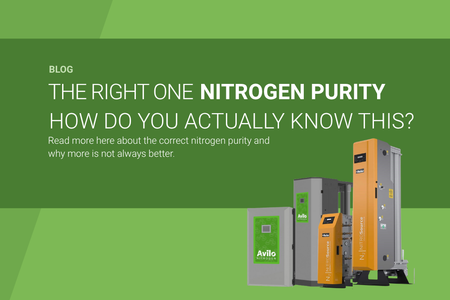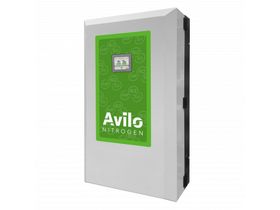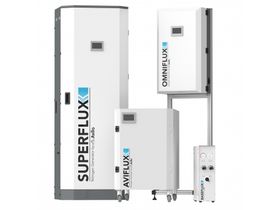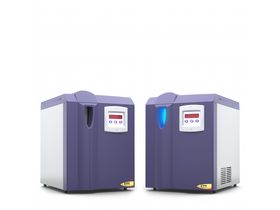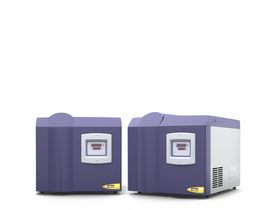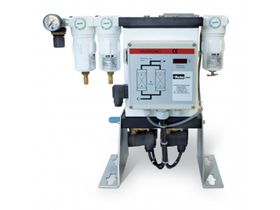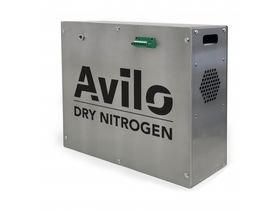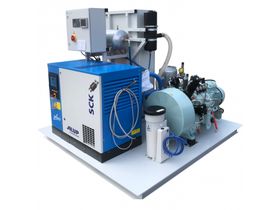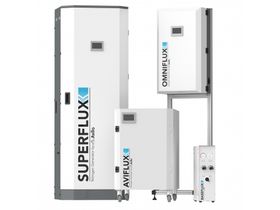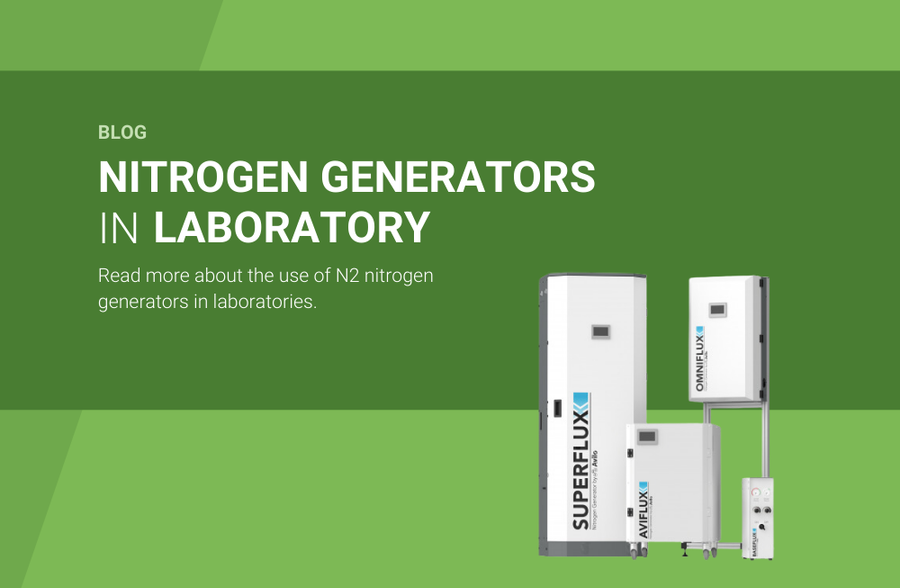
The use of N2 nitrogen generators in laboratories
N2 nitrogen generators play an important role in laboratories. These devices provide a reliable way to produce nitrogen gas for various applications, from laboratory experiments to industrial processes. In this blog, Wijnand Voets explains the benefits of N2 nitrogen generators and their applications in laboratories, including their use in laboratory techniques such as LC-MS, GC, and sample preparation.
What are N2 nitrogen generators?
N2 nitrogen generators are systems that produce nitrogen gas from ambient air using techniques such as Pressure Swing Adsorption (PSA) or membrane filtration. This process allows for the generation of pure nitrogen gas, which is essential for many laboratory applications that will be discussed later in this blog.
Benefits of N2 nitrogen generators
- Cost savings: In some cases, a generator pays for itself within 1.5 years. Traditionally, nitrogen gas is often supplied in cylinders or bulk, leading to high transportation and storage costs. With a nitrogen generator, laboratories can produce their own nitrogen, saving costs in the short term.
- Continuity: A nitrogen generator ensures a continuous supply of nitrogen, which is crucial for laboratories that rely on a steady gas flow for their processes. This prevents interruptions caused by waiting for gas cylinder deliveries.
- Safety: Working with heavy, high-pressure gas cylinders (200 bar) poses risks, such as leaks or explosions. Nitrogen generators eliminate these risks by producing the gas on-site, increasing safety in the laboratory.
- Environmental impact: Using nitrogen generators reduces the need for the transportation and production of gas cylinders, lowering the ecological footprint of a laboratory.
The application of nitrogen in laboratories
Nitrogen plays an important role in laboratories and is used in various ways:
- Analysis and research: Nitrogen is widely used as an inert gas in chemical analyses and spectroscopic techniques. It creates a non-reactive environment, preventing oxidation and other unwanted reactions, which is essential for accurate results.
- LC-MS (Liquid Chromatography-Mass Spectrometry): In LC-MS, nitrogen acts as a nebulizing gas, curtain gas, or is used to remove solvents from the sample. In summary, nitrogen is essential for various steps in LC-MS applications to enhance both analysis quality and the effectiveness of ionization processes.
- Gas Chromatography (GC / GC-MS): Nitrogen is also used in gas chromatography as a carrier gas. It is important for separating different components in a sample. Specifications for nitrogen in GC may include flow rate (e.g., 1-2 mL/min) and purity (minimum 99.999%), depending on the analysis requirements.
- Sample preparation: During sample preparation, such as with solvent evaporators like TurboVap, nitrogen is used to quickly evaporate solvents without affecting the samples. This is important for concentrating analytes and preparing samples for further analysis.
- Sample storage: Nitrogen is used to create an inert atmosphere for storing samples. This helps maintain the quality of the samples by minimizing oxidation and contamination.
- Reactions and syntheses: In chemical syntheses where oxygen is undesirable, nitrogen offers an ideal solution to prevent oxidation, ensuring the desired reaction outcomes.
- Vacuum packaging: Nitrogen is also used in vacuum packaging to extend the shelf life of substances by minimizing oxidation. This is especially important for sensitive substances that spoil quickly.
Technologies for N2 nitrogen generators
- PSA technology: PSA (Pressure Swing Adsorption) technology separates nitrogen from compressed air using adsorbent materials. As air flows through a vessel filled with carbon molecular sieve (CMS), the oxygen in the air is adsorbed by the CMS, leaving only nitrogen—with a purity of up to 99.9995%—to exit the system. PSA generators are ideal for applications requiring high purity.
- Membrane technology: Membrane technology is a simple, reliable, and continuous method for nitrogen production. Compressed air passes through hollow polymer fibers. The oxygen in the air escapes through the fiber walls and into the atmosphere, while high-quality nitrogen with a purity of 95% to 99.5% remains at the generator's outlet.
Other analytical gasses
In addition to nitrogen, other gasses are frequently used in laboratory applications. Examples include hydrogen, zero-air, and CO2-free air, which are essential for various analytical techniques.
- Hydrogen: Often used in gas chromatography (GC) as a fuel gas for flame ionization detectors or as a carrier gas. Hydrogen generators enable on-site production of hydrogen gas. Learn more about hydrogen generators.
- Zero-air: A clean air stream free of hydrocarbons, CO2, NOx, and H2O. Zero-air is used in applications where contaminants must be avoided, such as in GC-FID applications. Discover more about zero-air generators.
- CO2-free air: Used when CO2 contamination must be avoided, for example, in gas chromatography or spectroscopy. This type of air helps ensure high-quality analyses. View our CO2-free air generators.
These gasses provide laboratories with reliable and cost-effective solutions for their gas needs without depending on external suppliers.
Looking for nitrogen generators for other applications?
In addition to laboratory applications, we also offer nitrogen generators for industrial uses. Whether it's inerting production processes, modified atmosphere packaging, or other specific needs, we can supply nitrogen generators that meet the requirements of various industries. We even offer complete customized installations tailored to the specific needs of your company or project. View our turn-key systems and customized solutions.
Free advice on nitrogen generators
The use of nitrogen generators in laboratories offers numerous benefits, from cost savings and safety to environmental friendliness. By producing nitrogen on-site, laboratories can not only work more efficiently but also optimize their processes. Want to learn more about the benefits of nitrogen generators and their applications in your laboratory? Feel free to contact me via wijnand@avilo.nl or +31 (0)187 – 481366.
 EN
EN
 NL
NL

